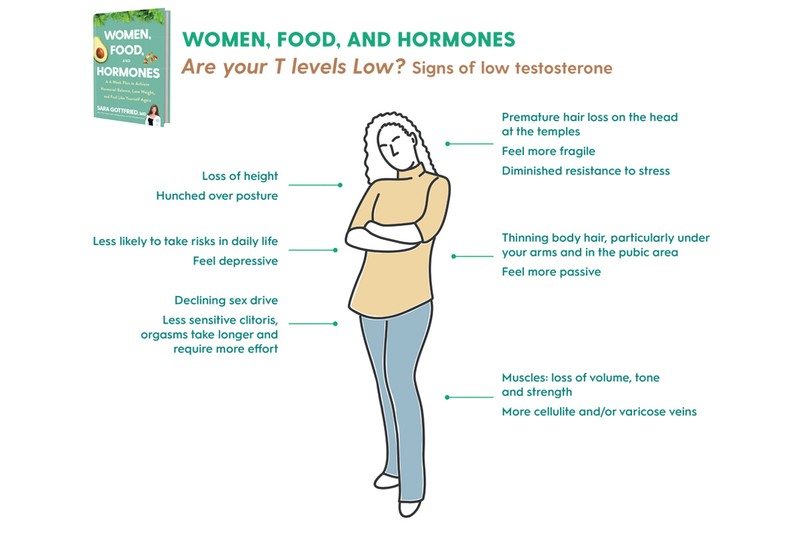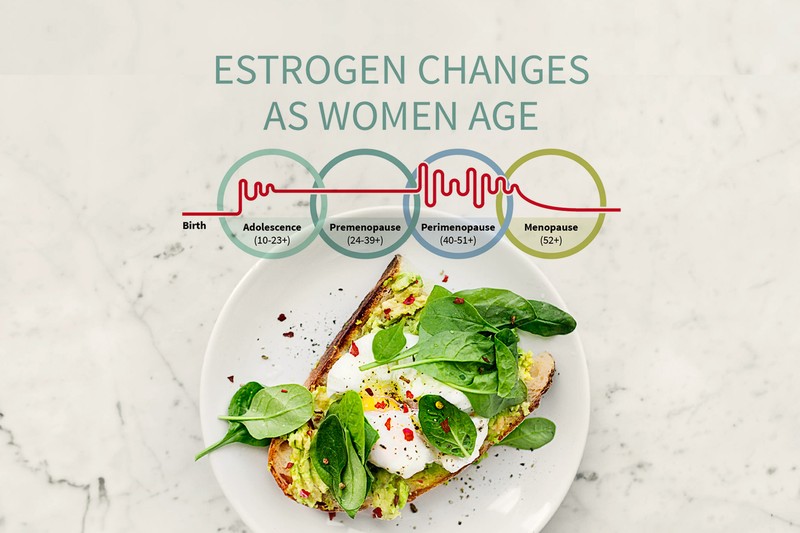
An Expert’s Guide To Balancing Hormones
Women have more hormone problems than men do. This leads to higher rates of anxiety, depression and insomnia among women. The unpleasant symptoms of hormone imbalance create a cascade of additional problems, particularly when it comes to weight loss. As a physician and a woman, I’m all too familiar with the vicious cycle of body dissatisfaction, stress and weight gain.
Multiple hormones shift at menopause. Our levels of progesterone, oestrogen and growth hormone decrease, sometimes precipitously. Progesterone drops first as you run out of ripe eggs, and that leads to shorter cycles. Oestrogen, meanwhile, is involved in appetite suppression, so as it drops, you may notice you’re hungrier. Growth hormone has multiple job descriptions including regulating the fat, muscle, tissue and bone in our body. Women have more of it than men until menopause, then levels drop. What might you notice? More belly fat, sagging skin, and less muscle. Or you might notice your hands are thinner, less muscular, or longitudinal lines on your nails. The net result is women gain an average of five pounds over the three years of the menopausal transition, and 20% gain ten pounds or more. This weight gain is linked to everything from a greater risk of heart disease to high blood pressure and cholesterol.
Testosterone is often overlooked in women’s health. Most women don’t realise testosterone is the most abundant hormone they have. Men may have up to 20 times more testosterone than us, but we are more sensitive to it. Testosterone plays a crucial role in aiding the construction of the body – from bones to muscle and skin – and simultaneously breaks down fat. If you’re trying to get leaner and lose body fat, testosterone is an important ally. It generally helps men build more muscle mass and gives them a higher resting metabolic rate – that is, men tend to burn more calories at rest than women do. Since women produce less testosterone than men, we have less muscle mass and a lower metabolic rate – which is why men lose weight and gain muscle more easily than we do.
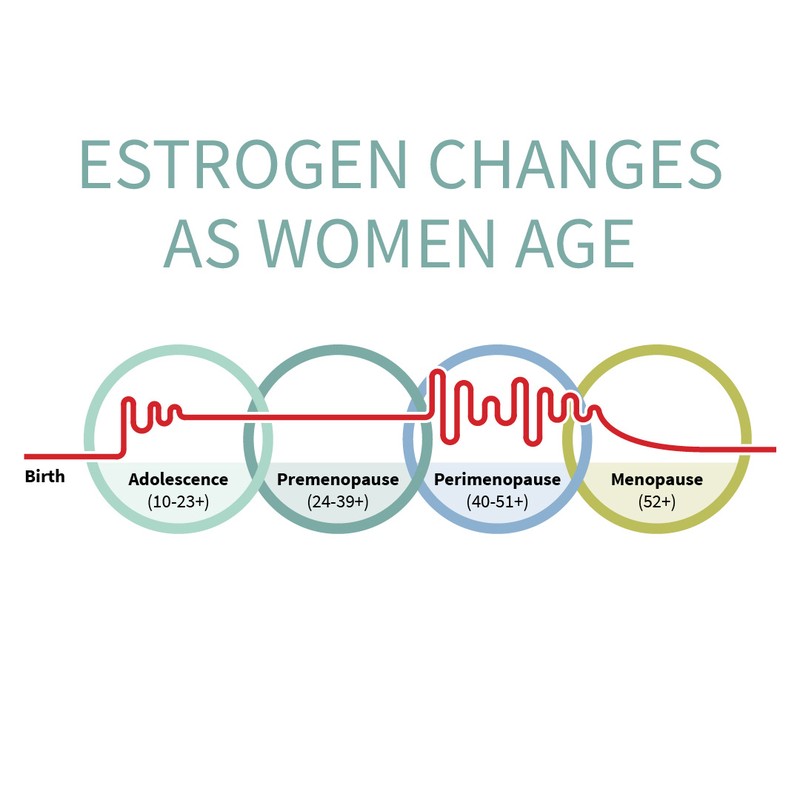
Keep an eye out for the signs of low testosterone. Your testosterone levels start to decline from your mid-30s, dropping significantly in perimenopause and menopause. Signs of low testosterone include premature hair loss; feeling more fragile; diminished resistance to stress; loss of height and a hunched over posture; feeling depressive; a declining sex drive; loss of muscle volume, tone and strength; and more cellulite and varicose veins.
Diet is the easiest way to boost your testosterone levels. Foods that are associated with lower levels of testosterone include bread, pastries, sugar-sweetened and diet drinks, coffee, dairy products and desserts. Foods associated with higher testosterone levels include dark green vegetables and certain herbs, such as fenugreek and ginkgo biloba. Eating protein is also important – aim for around 0.75-1g of protein per pound of lean body mass, less if you are sedentary and more if you are very active.
Think about growth hormone too. Growth hormone stimulates growth and cell regeneration. As a child, it makes you taller. As an adult, it keeps your muscles lean by building muscle and burning fat. Unfortunately, growth hormone declines slowly as you age, beginning around the age of 30, especially if you experience a lot of stress, eat carbs throughout the day, sit too much and don’t exercise enough. Eating more quality protein and omega-3 fats can help, as can fasting and interval training. A weekly sauna can also help – a 30 to 60-minute sauna raises growth hormone by up to 140% after a single session.
Your gut plays a part. As we age, several things happen to the gut. Cortisol, the main stress hormone, rises and that can lead to increased gut permeability, making you more likely to experience food reactions (for example, gluten and dairy are the two most common intolerances at this age) and immune problems. With age you are more likely to experience an imbalance of the relative amounts of good and bad microbes – this is called dysbiosis. Fortunately, people who are relatively lean and physically active have healthier gut function, with a higher abundance of certain benevolent bacteria in their gut compared to people who are less healthy and fit.
There’s no need to cut out all carbs. You may have read about the ketogenic diet – it’s a high-fat, moderate-protein, low-carb diet that claims to help with weight loss. It’s one of the most effective strategies to repair insulin, the main hormone involved in weight gain. However, it’s not so clear cut. On a classic keto, some women lose weight. Some develop better focus. On the other hand, some women develop thyroid dysfunction, and some find the diet physically stressful. Some women actually gain weight on diets like keto, and for the most part no one is warning them about the effects on hormones. The truth is, classic keto has mostly been studied in men, and it needs to be modified for many women to be successful. Women need carbs. I believe the low intake of carbs on a classic keto diet is why so many women struggle with it. When I modified the carb intake and added in more plant-based, prebiotic carbs, I found success with the keto diet.
Aim for 25-30g of carbs per day. Eat plenty of non-starchy vegetables, especially cruciferous varieties, such as cabbage, broccoli and cauliflower. These include a nutrient called sulforaphane, which helps multiple liver detox pathways. If you don’t eat enough carbs, it can not only have a negative impact on your sleep (which in turn can cause weight gain), but can also wreak havoc with your stress levels. Carbs help mitigate the stress response and lead to lower levels of cortisol. Higher levels of cortisol can trigger blood sugar problems and storage of belly fat, and make fat loss more difficult.
At the same time, eat plenty of healthy fats. Fats help you make healthy hormones – aim for 60-90g of healthy fats per day. Nuts are a great source – the best ketogenic varieties are macadamias, walnuts, almonds and pecans – but limit to one serving of 28g per day. Use organic, extra-virgin olive oil and add it to virtually any dish – one of my mentors recommends five tablespoons per day. Stock up on avocados (a healthy serving is between a quarter and half an avocado); and use one tablespoon of coconut oil per day.
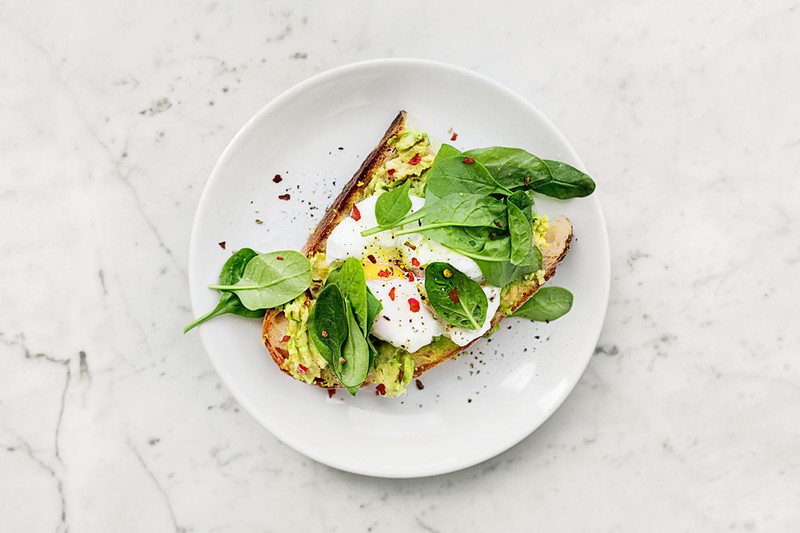
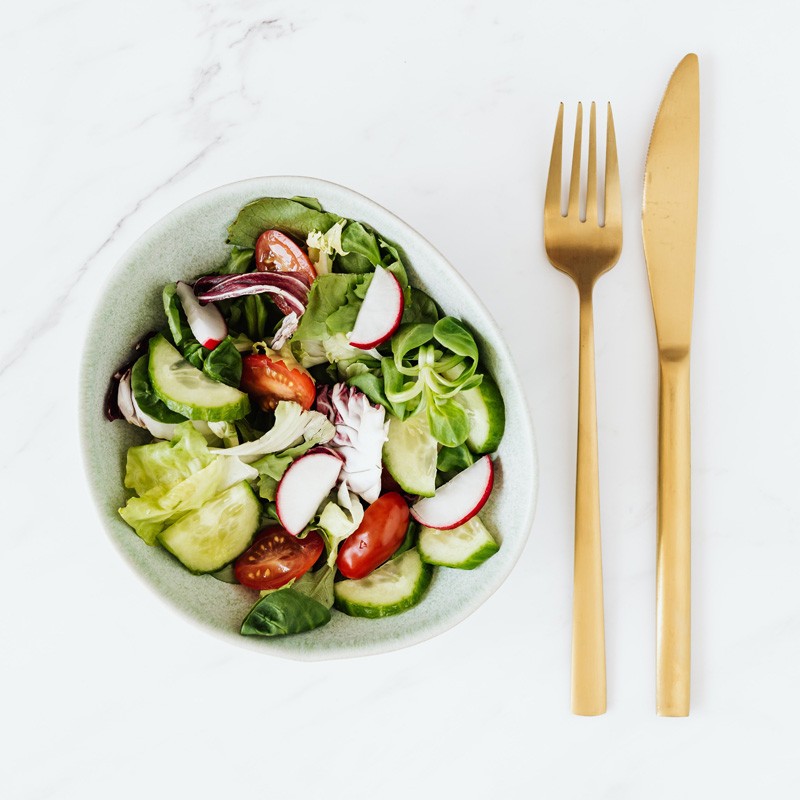
Combine a low-carb approach with intermittent fasting. This is what I call the Gottfried Protocol – it’s designed to sidestep the keto paradox with a programme that’s tailormade for a woman’s body. You’ll be able to sustain a lower weight while eating a healthy quantity of high-quality carbs, resulting in better hormone balance and fat loss. Of all the programmes I’ve utilised with thousands of patients in my clinic over 25 years, time-restricted eating – also known as intermittent fasting – is the easier modification to encourage weight loss, especially for women. Keep it simple: close your kitchen after dinner to create an approximate 14-16-hour window of fasting, during which time you’ll shift into fat-burning, insulin-optimising mode. And don’t forget that most of the fasting occurs while you sleep.
If you’re new to fasting, start slow. While some women can jump right in and ramp it up to 16 or even 18 hours of overnight fasting almost immediately, many women need a more gradual transition. If you’re just starting out, you may need to start with a 12 or 14-hour window twice per week, and not on consecutive days. You’ll soon find out what best suits you. Either way, something is better than nothing. Data shows intermittent fasting is particularly effective at encouraging weight loss as it improves the balance of several hormones and leads to metabolic switching, meaning your body learns to burn fat instead of carbs. Fasting also helps regulate inflammation, increases brain function so you feel sharper, lowers blood pressure, and may modulate leptin levels so you feel more satisfied.
If you’re serious about weight loss, avoid alcohol for at least three weeks. One of the most common mistakes I see women over the age of 50 making when it comes to weight loss is alcohol – far too many of us use it as a crutch after a stressful day. The reality is alcohol can shut down fat burning by around 70% for 24 hours. Plus, with seven calories per gram, alcohol is more calorie-dense than protein or carbs. What do you want more – metabolic health or a glass of wine? You may need to give it up temporarily to get your hormones back in balance. Alcohol interferes with the metabolism of oestrogen and increases the risk of breast cancer. And skipping your glass of wine may do more for your mental health than drinking it, according to a recent study.
Think about how you exercise too. Another common mistake I see women making is doing too much cardio. Intense cardio sessions can backfire as they increase cortisol levels, and higher levels of cortisol can raise blood sugar and insulin, encouraging your body to store fat. Instead, plan your exercise to a ratio of one-third cardio to two-thirds resistance training.
Finally, remember taking it slow matters. If weight loss is your goal, it’s important to take a long-term view. The average woman gains two pounds per year from age 16 to 36 and scientists have shown this weight gain is subtle, representing as little as 20 extra calories per day, combined with wayward activity of hormones like cortisol and insulin. Remember you need to lose the pounds gradually, too – rapid weight loss is rarely sustainable.
‘Women, Food and Hormones’ by Dr Sara Gottfried is available now. For more information, visit SaraGottfriedMD.com and follow her on Instagram @SaraGottfriedMD.
DISCLAIMER: Features published by SheerLuxe are not intended to treat, diagnose, cure or prevent any disease. Always seek the advice of your GP or another qualified healthcare provider for any questions you have regarding a medical condition, and before undertaking any diet, exercise or other health-related programme.
DISCLAIMER: We endeavour to always credit the correct original source of every image we use. If you think a credit may be incorrect, please contact us at info@sheerluxe.com.
